Grandparents in China have traditionally been seen as childcare for new parents but a new generation of elderly people have decided to prioritise their own well-being. What is causing them to turn away from this traditional role for older people in rural parts of the country?
In an ordinary rural village in China, laughter and lively conversation fill the Jiying shop as elderly villagers shuffle cards, sip tea and swap stories. Zhiyong Tong, dressed in his typical blue shirt, stands at the centre of the action, his movements swift and sure as he deals a new hand of cards.
Tong, 75, lives nearby with his wife and comes to the shop every day. Now, even with his hands busy at the desk, he was thinking of his old friend who is watching her grandchildren grow up. But he is enjoying the freedom that comes with retirement and happy about his current life. As he leans back, a knowing smile crosses his face.
“I have spent my years caring for others, raising my children to be good adults. Now it’s time to live for myself. I see my friends, burdened with childcare, missing out on the peaceful retirement we’ve earned. It’s not selfish to choose happiness in old age, it’s necessary,” says Tong.
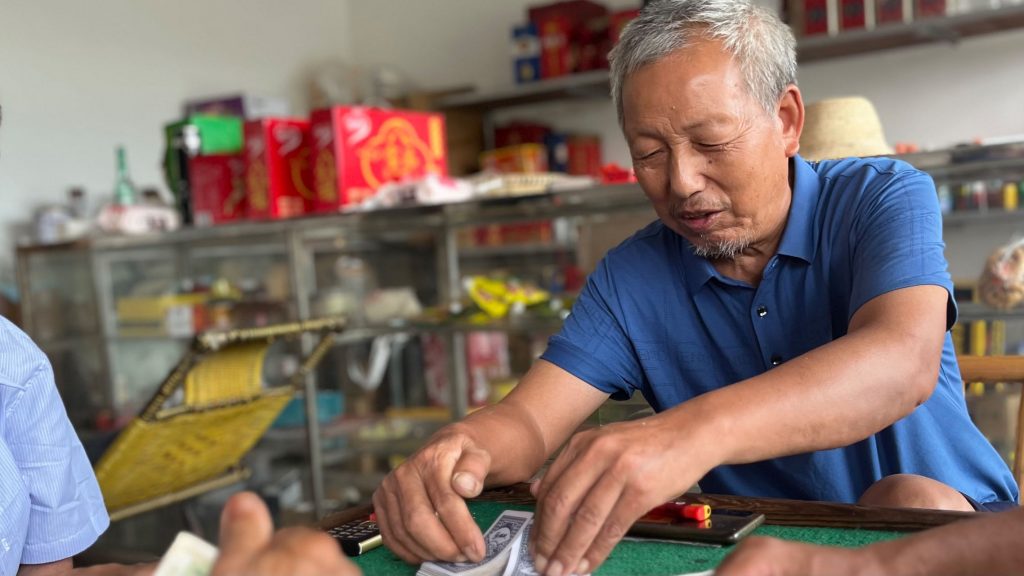
“We used to be the support of the household, helping to raise the children while our own children worked. Now many of us choose to live for ourselves,” he says.
Traditionally, grandparents played a crucial role in family dynamics, as they often lived under one roof with their children and grandchildren. They were not only caregivers, but also custodians of values and traditions.
But Tong says: “The old ways are fading, and so is the expectation that we must always be the caretakers. It’s not just about new opportunities for the young, it’s about our choices as seniors.”
While discussing the evolving role of grandparents in rural China at the Shop, Tong’s conversation is abruptly interrupted by a phone call. It’s his son, asking if Tong will look after his grandchildren for the weekend. Tong’s response is firm and frustrated, he refuses. Moments before, he had been telling the story of his friend Huang.
“Let me tell you about Huang,” Tong begins. “After his eldest granddaughter was born, his daughter-in-law insisted on Tong should take her in, as her work took up all her time. At first, Huang and his partner thought it would bring joy and alleviate loneliness. But the reality was very different.
Tong pauses, looking around at the shop’s now mostly elderly clientele. “Huang soon found that caring for his granddaughter took up all his time. His social life dwindled, and the small pleasures he and his partner once enjoyed were overshadowed by new responsibilities.
The financial strain soon became apparent. “It wasn’t just time,” Tong continues. “Huang’s son and daughter-in-law sent their daughter away without any financial support for her needs. Milk powder, clothes, toys, doctor’s visits, all these costs added up, and when Huang asked for help, they brushed him off.
They argued that it was his duty as a grandparent to spend on his granddaughter and accused him of “holding on to money he couldn’t take to his coffin”.
The crowd in the shop listens, nodding in understanding. “He had to dip into his savings, which were meant for his and his partner’s needs, medicine, the occasional treat, maybe even a little holiday. All that had to stop.”
Tong’s voice becomes firmer as he tells the story of Huang. “Raising children is the responsibility of parents, not grandparents. If the elders decide to help, it’s a kindness, not an obligation. Our children should be independent, not looking at what little we’ve managed to save after a lifetime of hard work.”
“This change isn’t just about finding peace in retirement,” says Tong. “It is about setting boundaries that respect our needs as individuals. It’s a lesson in dignity and self-respect, teaching our children that while we love them, we also value our freedom and financial security”.
As Tong wraps up his story, the implications are clear. The shop, which used to be a great place for young people, is now a meeting point for older people like Tong. They meet not only to share news and stories, but also to talk about and rethink what their golden years should look like.
China has seen some big changes in recent years. It’s urbanised rapidly and its economy has grown significantly, which has transformed life in both urban and rural areas. This change isn’t just about skyscrapers and new technology. There are also changes in family structures and roles within them.
Siming Liu ia a 70-year-old former fish farmer in the same small rural village as Zhiyong Tong. She has seen these changes happen right before her eyes. As big cities like Guangzhou offer new opportunities with better jobs and higher wages, many of her younger neighbours have moved away. As they hope to find a bigger paycheck and a better quality of life.
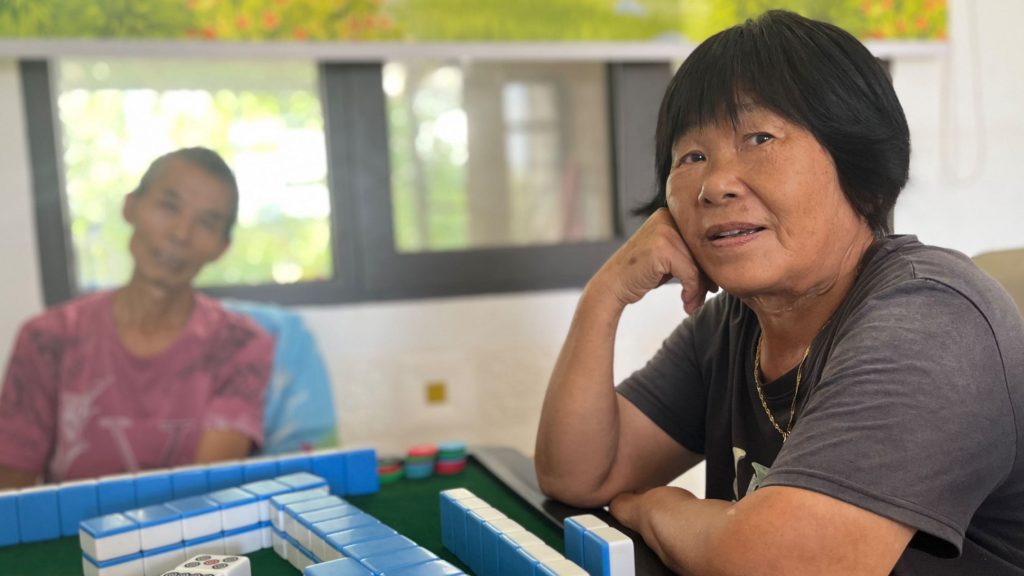
Even though her adult children has moved to urban areas, Liu and her husband stay in the countryside. “I’ve always know the value of independence,” she says. “Thanks to years of hard work, we’ve saved enough to be in a position where we’re not financially dependent on our kids. So we can enjoy our retirement life here where have our roots and memories.”
This decision also reflects a broader shift in her life priorities. Liu has made a conscious choice to prioritise her personal happiness over traditional caregiving roles. which has also changed her family dynamics. Her son is now shouldering the financial burden of his daughter’s education in Guangzhou as Liu’s daughter-in-law, who has quit her job to stay at home and care for her child.
“I really wish I could go back to work, as my career was gaining momentum before I had to stop,” Liu’s daughter-in-law said. “Childcare here is either too expensive or non-existent, so we have few options.”
This spring, Siming Liu and her husband decided to pack their bags for an overdue trip to Guangzhou to see their granddaughter. “It had been ages since we’d been to the big city. It seemed like the perfect chance to catch up with our granddaughter and see how things are done on the other side of the city,” says Liu.
During their days in the city, they felt a lively atmosphere different from that in the countryside. During the day, they will go shopping in a large shopping mall, where they will feel the crowd. After dinner they take a relaxing walk in the quiet park where they meet old people of the same age.
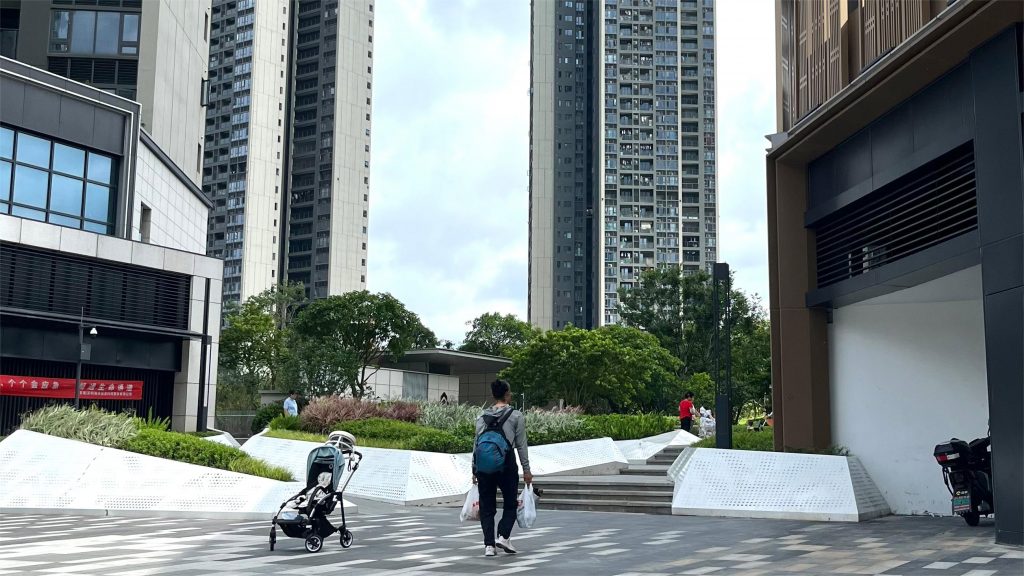
“I really like the energy of big cities. It’s full of life and freshness. The food here is also diverse, and I can taste dishes from all over the country in one city.” Liu says. For Liu, watching her granddaughter play carefree in the park also makes her happy. “Seeing her so happy and free made me realize how precious these moments are,” she says.
The trip also also brought new energy to the normally reserved Liu’s husband. He also found the vibrant atmosphere of the city really uplifting. “By the time we left, he was already planning our next trip. We have become totally obsessed with travel,” Liu says with a laugh.
Her time in Guangzhou also made her and her husband more determined to have a more flexible retirement. “The trip made us realise that our retirement should be more than just quiet days. We should discover new places and create new stories and memories” says Liu.
“It’s great to spend time with my granddaughter, but I’m also aware that my choice not to be her main babysitter means I could enjoy a happy and free lifestyle, just like the small kid.”
Wang Jiying has been running the Jiying Shop for 15 years. “Years ago, the shop was a popular place for families with young children to play under the watchful eyes of their grandparents. The little ones grew up here, and my shop was full of youthful energy,” she says.
“But those scenes are pretty rare these days. The kids have grown up, and there are fewer families who rely on their grandparents for day-to-day care. Our shop is quieter these days, and it’s mostly the elderly who come by.”
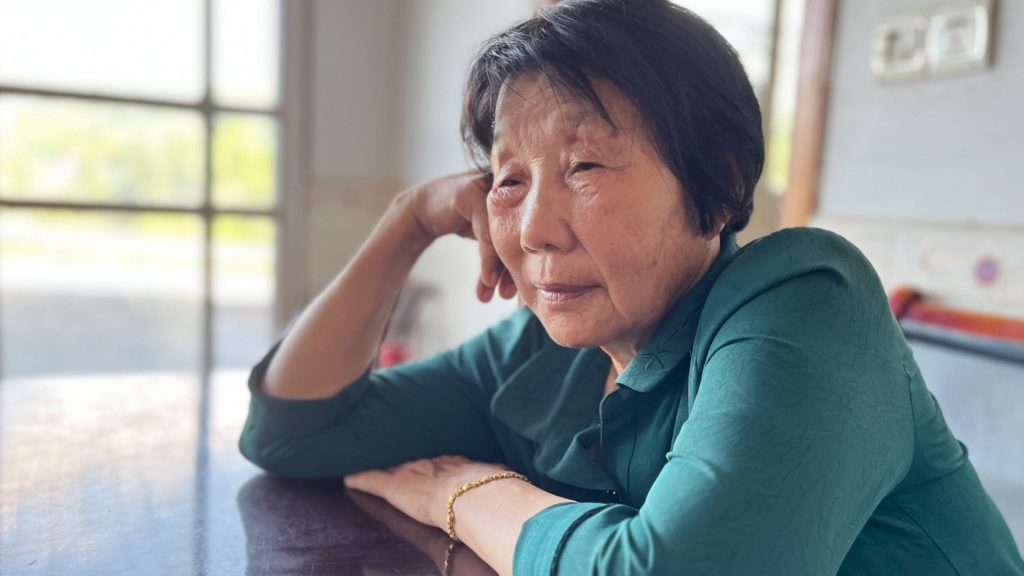
As the regulars enjoy their tea, they often chat about the wider changes affecting their community, including political shifts and economic pressures.
It would seem that these changes are part of a national trend that has been shaped by decades of the one-child policy, and which is now being compounded by increased life expectancy. The World Health Organization has made a prediction that by 2040, 28% of China’s population will be over the age of 60.
In response to these demographic changes, the Chinese government has introduced new policies to address the challenges of an ageing population. In 2021, the Political Bureau of the CPC stressed the importance of further optimising fertility policy.
It was announced that implementing a policy that allows each couple to have up to three children would help improve China’s demographic structure.
Yang Wenzhuang, a government official in China, emphasised that these “changes are designed to facilitate the achievement of a more appropriate fertility level and promote the balanced, long-term development of the population.”
“The three-child policy and related support measures are mainly aimed at improving the demographic structure and actively responding to the ageing population,” says Yang.
The introduction of the three-child policy is seen as a crucial step in easing the pressure of an ageing society and correcting demographic imbalances. But Weiming Luo, Wang Jiying’s husband talked about the impacts of these changes at the local level: “By allowing more children per family, we may see the traditional role of grandparents as caregivers intensify.”
“This growing burden may soon fall on fewer young shoulders and the situation might get worse, with potentially nine mouths to feed and only one pocket to manage it all.”
“That’s partly why our 30-year-old daughter is reluctant to have children. She knows that unlike before, her mother and I can’t commit to raising another child,” he says.
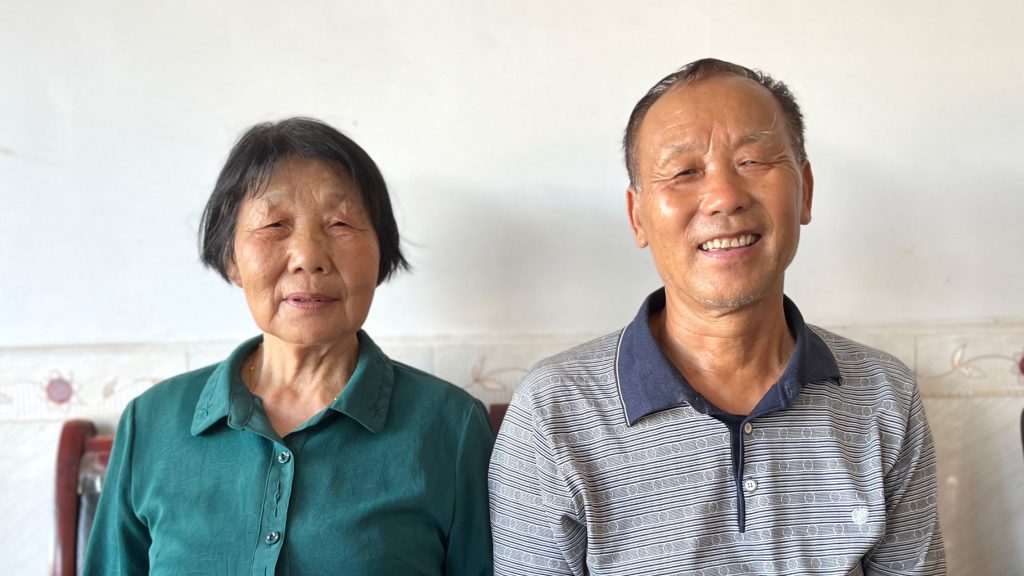
Recent research by the Max Planck Institute for Demographic Research highlights a significant shift, the number of grandparents worldwide has tripled since 1960, with a particularly sharp increase in China.
Research also shows that this demographic shift is changing the traditional role of grandparents, with the ratio of grandparents to children under 15 almost doubling. By 2050, it is predicted that grandparents will outnumber children under 15.
In the community surrounding the Jiying Shop, these trends are being felt as well. The trend is for elders to move from active caregiving to advisory roles. This shows a change in attitude towards personal independence and well-being, which are becoming more important than traditional responsibilities.
“More and more grandparents are choosing to focus on themselves after retirement over full-time care,” says a local teacher during their conversation. “This is changing the way family support systems look at a time when they’re needed the most.”
On top of that, the hukou system makes things worse. It limits rural people’ access to public services in cities. Parents have to leave children with grandparents in rural areas while they work in cities. The teacher says, “The hukou system makes the gap between urban and rural life bigger. It forces children to stay in villages, which puts pressure on grandparents.”
But as grandparents try to cope with these changes, they find themselves facing a tricky dilemma. “There’s a growing need for their care because of the three-child policy and urban migration, but there’s also a clear trend for them to focus on their own lives,” the teacher says.
“Some feel they have a conflict between wanting more freedom and feeling they have to fulfil their family responsibilities.”
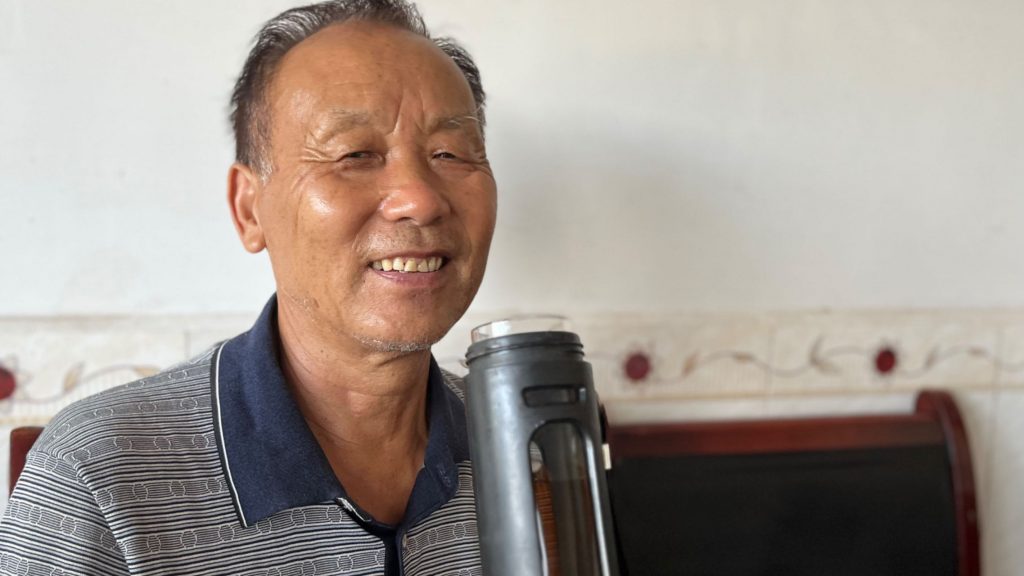
As China’s economy grow and more people move to cities, it seems that traditional family structures are undergoing changes. These changes have an impact on individuals and on Chinese society as a whole.
For many older people like Tong and Liu, this change means they can enjoy a new kind of freedom. They can now “go out” to explore personal interests and social activities .
However, this also means that the traditional support system that family elders once provided is being challenged, which could potentially lead to greater social isolation and economic challenges for those who are most vulnerable.
For our society, this means that we need to make some changes to our policies, such as improving the way we care for the elderly, introducing better pension systems, and making some compensation for coordinating family arrangements.
This will help us support our elderly in the way they deserve and give them the freedom to live their lives. It may also affect the way future generations view family and older people’s responsibilities, which could lead to more changes in how home care is viewed and managed.
The changing role of individual grandparents in rural China reflects larger social changes that are taking place across the country. These changes do not only affect older people, but also show a greater focus on individual freedom and well-being at every stage of life.
As China continues to grow and change, these cultural shifts are likely to affect the social contract between generations, which in turn affects everything from family arrangements to state policies. “If we live the best life, people in our age group will be happy, and society will be better because older people are happier,” Tong says.
